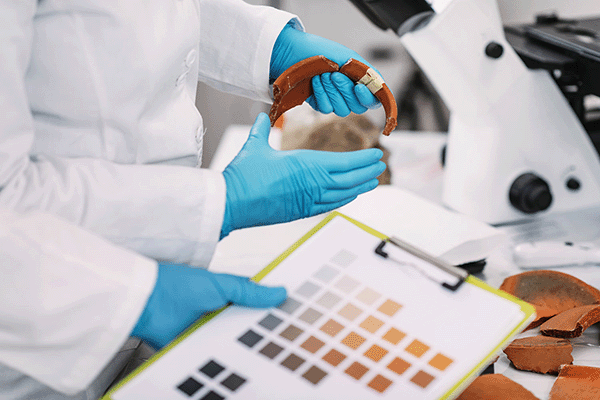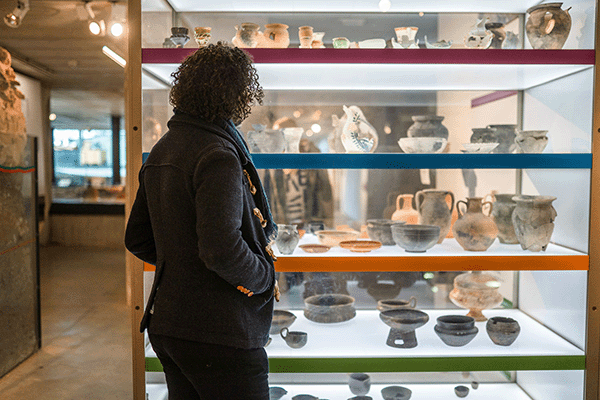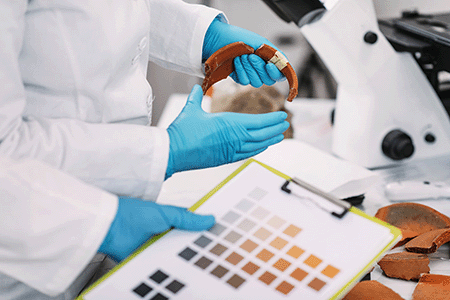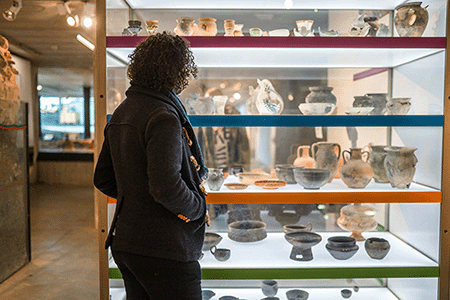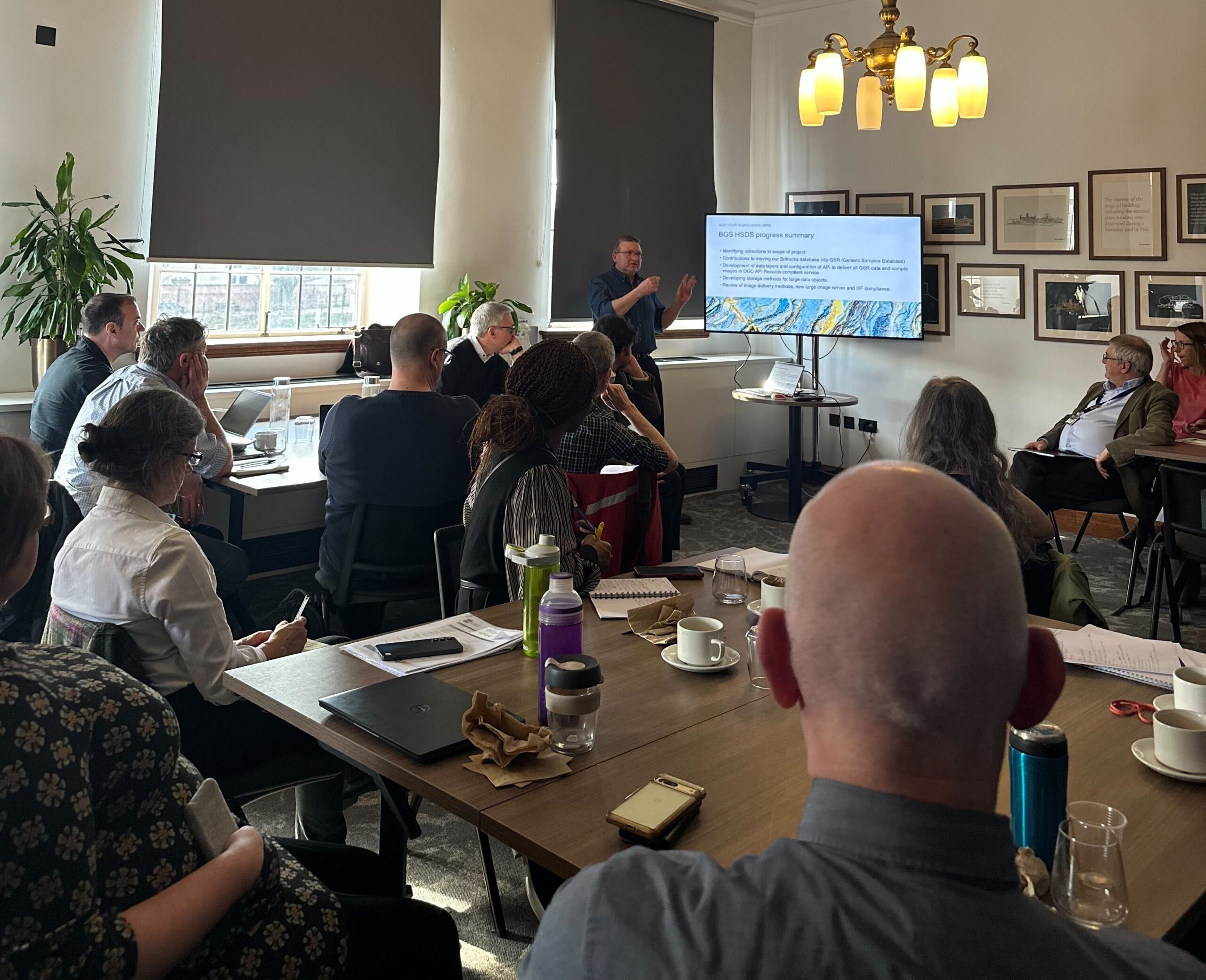In March, the RICHeS team travelled to York to visit the Heritage Science Data Service (HSDS). This pivotal RICHeS’ funded project is being developed by the Archaeology Data Service (ADS) at the University of York. Over two days, the team met with Professor Julian Richards and his growing team for the HSDS Management Committee meeting and a dedicated project visit.
Building the future of digital research infrastructure
The HSDS will provide core Digital Research Services, offering a single virtual discovery point for the RICHeS distributed infrastructure collections, facilities, expertise and data. The HSDS will be a core resource of the RICHeS programme and a flagship for digital research infrastructure. It will ensure that heritage science equipment, expertise, resources and research data are findable and accessible to users, available to external stakeholders, and capable of being leveraged by a range of partners.
Over the next five years (2024-2029), the HSDS will:
- Create a comprehensive catalogue of research facilities and collections
- Build a user-friendly platform to easily navigate and access diverse heritage science data collections
- Establish a secure, FAIR repository for long-term preservation of research data
- Create a suite of Virtual Research Environments and software tools to allow researchers to visualise and analyse data
The RICHeS team were thrilled to see the progress already underway. In recent months, the HSDS team has launched their new website, recruited new staff members and have begun supporting RICHeS funded projects with tailored data management services. The HSDS team will be offering tailored training for RICHeS project teams, as all research data arising from the non-private use of the RICHeS equipment and facilities must be deposited in a trusted digital repository and made available for reuse.
Meanwhile, the National Heritage Science Forum has been leading essential user needs research for the HSDS, mapping audiences and charting user journeys to guide the platform’s design and development. With the catalogue and repository taking shape, the HSDS promises to become a transformative resource for the heritage science and conservation community.
Professor Meggen Gondek, Head of RICHeS IHQ shares:
“What I found really engaging and exciting were the discussions around the innovation potential of using data through the virtual research environment and how expansive the list of people who will find value in the HSDS is“.
Collaboration: the key to innovation
A key highlight of the visit was meeting with the wider HSDS consortium, fourteen partners bringing diverse digital expertise and data assets to the project. These initial data providers represent leading UK heritage bodies, whose involvement ensures broad sector coverage and a “design with data” approach that aligns with ADS’s strengths. RICHeS were encouraged to hear about their active engagement in events and conferences, where knowledge is exchanged and collaboration deepens.
The HSDS is being delivered in partnership with the Science and Technology Facilities Council’s Hartree Centre, a national facility for high-performance computing, data analytics and AI research. With the RICHeS IHQ now co-located at Sci-Tech Daresbury alongside the Hartree Centre, this proximity opens exciting possibilities for integrating advanced technologies into heritage science.
On the international side, the HSDS will provide the UK DIGILAB hub for E-RIHS (European Research Infrastructure for Heritage Science). With RICHeS IHQ now formally the UK National Node (as of 31 March 2025), this will foster international collaboration and elevate the impact of conservation and heritage science, ensuring that knowledge and best practices are shared across borders.
We will continue to work closely with the HSDS team and look forward to sharing further updates on this collaborative core project.
Professor Julian Richards, Project Lead for the HSDS shares:
“We were delighted to have the opportunity to host this visit from colleagues at RICHeS IHQ, to welcome them to the HSDS Management Committee meeting, and to share our plans with them. As HSDS take shape, close collaboration with the IHQ team will be essential to fulfil the potential of RICHeS”.

